afterLoad (456.22KB) (533μs)
afterInitialise (1.27MB) (38.12ms)
afterRoute (840.55KB) (14ms)
beforeRenderComponent com_tags (20.75KB) (215μs)
afterRenderComponent com_tags (1.94MB) (96.91ms)
afterDispatch (27.45KB) (2.32ms)
beforeRenderRawModule mod_articles_category (READ MORE...) (423.86KB) (9.2ms)
Before Access::preloadComponents (all components) (50.9KB) (393μs)
After Access::preloadComponents (all components) (103.05KB) (2.94ms)
Before Access::getAssetRules (id:8 name:com_content) (840B) (16μs)
After Access::getAssetRules (id:8 name:com_content) (7.05KB) (39μs)
afterRenderRawModule mod_articles_category (READ MORE...) (8.48KB) (64.47ms)
beforeRenderRawModule mod_custom (BOOST YOUR IMMUNE DEFENSE) (6.45KB) (21μs)
afterRenderRawModule mod_custom (BOOST YOUR IMMUNE DEFENSE) (3.8KB) (599μs)
beforeRenderRawModule mod_tags_popular (Search) (2.36KB) (17μs)
afterRenderRawModule mod_tags_popular (Search) (6.03KB) (120ms)
beforeRenderRawModule mod_custom (Get additionel and more detailed knowledge ) (816B) (29μs)
afterRenderRawModule mod_custom (Get additionel and more detailed knowledge ) (1.55KB) (68μs)
beforeRenderRawModule mod_custom (Overview of vitamins, minerals, and essential fatty acids) (768B) (13μs)
afterRenderRawModule mod_custom (Overview of vitamins, minerals, and essential fatty acids) (960B) (25μs)
beforeRenderRawModule mod_custom (Q10 goes by many names) (608B) (9μs)
afterRenderRawModule mod_custom (Q10 goes by many names) (928B) (21μs)
beforeRenderRawModule mod_custom (Check this before you buy a Q10 product) (752B) (9μs)
afterRenderRawModule mod_custom (Check this before you buy a Q10 product) (944B) (18μs)
beforeRenderRawModule mod_custom (Are you taking supplements) (736B) (9μs)
afterRenderRawModule mod_custom (Are you taking supplements) (1.03KB) (19μs)
beforeRenderRawModule mod_custom (Weight loss that works) (736B) (828μs)
afterRenderRawModule mod_custom (Weight loss that works) (1.03KB) (46μs)
beforeRenderRawModule mod_custom (Antiaging) (720B) (13μs)
afterRenderRawModule mod_custom (Antiaging) (912B) (22μs)
beforeRenderRawModule mod_menu (Are you getting enough vitamins and minerals?) (2.5KB) (12μs)
afterRenderRawModule mod_menu (Are you getting enough vitamins and minerals?) (22.39KB) (627μs)
beforeRenderRawModule mod_menu (The key to increased well-being) (736B) (19μs)
afterRenderRawModule mod_menu (The key to increased well-being) (17.83KB) (265μs)
beforeRenderRawModule mod_menu (Did you know.....) (720B) (18μs)
afterRenderRawModule mod_menu (Did you know.....) (25.52KB) (1.13ms)
beforeRenderRawModule mod_custom (Useful Links) (1.06KB) (21μs)
afterRenderRawModule mod_custom (Useful Links) (1.02KB) (35μs)
beforeRenderRawModule mod_custom (Chronic fatigue tied Alan to his bed but Q10 capsules saved him:) (244.28KB) (4.44ms)
afterRenderRawModule mod_custom (Chronic fatigue tied Alan to his bed but Q10 capsules saved him:) (1.06KB) (65μs)
beforeRenderModule mod_custom (Chronic fatigue tied Alan to his bed but Q10 capsules saved him:) (768B) (4μs)
afterRenderModule mod_custom (Chronic fatigue tied Alan to his bed but Q10 capsules saved him:) (1.3KB) (57μs)
beforeRenderRawModule mod_custom (Cholesterol-lowering without side effects:) (368B) (14μs)
afterRenderRawModule mod_custom (Cholesterol-lowering without side effects:) (1.06KB) (187μs)
beforeRenderModule mod_custom (Cholesterol-lowering without side effects:) (752B) (3μs)
afterRenderModule mod_custom (Cholesterol-lowering without side effects:) (1.28KB) (35μs)
beforeRenderModule mod_articles_category (READ MORE...) (20.82KB) (428μs)
afterRenderModule mod_articles_category (READ MORE...) (1.25KB) (51μs)
beforeRenderModule mod_custom (BOOST YOUR IMMUNE DEFENSE) (6.81KB) (14μs)
afterRenderModule mod_custom (BOOST YOUR IMMUNE DEFENSE) (1.28KB) (51μs)
beforeRenderModule mod_tags_popular (Search) (1.98KB) (13μs)
afterRenderModule mod_tags_popular (Search) (1.27KB) (24μs)
beforeRenderModule mod_custom (Get additionel and more detailed knowledge ) (1.17KB) (10μs)
afterRenderModule mod_custom (Get additionel and more detailed knowledge ) (1.3KB) (23μs)
beforeRenderModule mod_custom (Overview of vitamins, minerals, and essential fatty acids) (384B) (9μs)
afterRenderModule mod_custom (Overview of vitamins, minerals, and essential fatty acids) (1.31KB) (22μs)
beforeRenderModule mod_custom (Q10 goes by many names) (208B) (9μs)
afterRenderModule mod_custom (Q10 goes by many names) (1.27KB) (58μs)
beforeRenderModule mod_custom (Check this before you buy a Q10 product) (352B) (11μs)
afterRenderModule mod_custom (Check this before you buy a Q10 product) (1.28KB) (22μs)
beforeRenderModule mod_custom (Are you taking supplements) (352B) (9μs)
afterRenderModule mod_custom (Are you taking supplements) (1.28KB) (23μs)
beforeRenderModule mod_custom (Weight loss that works) (336B) (9μs)
afterRenderModule mod_custom (Weight loss that works) (1.27KB) (22μs)
beforeRenderModule mod_custom (Antiaging) (336B) (8μs)
afterRenderModule mod_custom (Antiaging) (3.77KB) (22μs)
beforeRenderModule mod_menu (Are you getting enough vitamins and minerals?) (2.13KB) (11μs)
afterRenderModule mod_menu (Are you getting enough vitamins and minerals?) (1.3KB) (22μs)
beforeRenderModule mod_menu (The key to increased well-being) (352B) (10μs)
afterRenderModule mod_menu (The key to increased well-being) (1.28KB) (34μs)
beforeRenderModule mod_menu (Did you know.....) (336B) (11μs)
afterRenderModule mod_menu (Did you know.....) (1.27KB) (24μs)
beforeRenderModule mod_custom (Useful Links) (1.44KB) (9μs)
afterRenderModule mod_custom (Useful Links) (1.27KB) (21μs)
beforeRenderRawModule mod_menu (Main Menu - English) (29.14KB) (1.68ms)
afterRenderRawModule mod_menu (Main Menu - English) (192.45KB) (1.47ms)
beforeRenderModule mod_menu (Main Menu - English) (720B) (4μs)
afterRenderModule mod_menu (Main Menu - English) (4.86KB) (391μs)
beforeRenderRawModule mod_languages (Sprogskift) (3.94KB) (20μs)
afterRenderRawModule mod_languages (Sprogskift) (22.55KB) (2.15ms)
beforeRenderModule mod_languages (Sprogskift) (720B) (5μs)
afterRenderModule mod_languages (Sprogskift) (5.31KB) (23μs)
beforeRenderRawModule mod_finder () (6.34KB) (11μs)
afterRenderRawModule mod_finder () (128.59KB) (1.86ms)
beforeRenderModule mod_finder () (704B) (5μs)
afterRenderModule mod_finder () (3.29KB) (32μs)
beforeRenderRawModule mod_custom () (6.62KB) (140μs)
afterRenderRawModule mod_custom () (22.64KB) (1.02ms)
beforeRenderModule mod_custom () (704B) (6μs)
afterRenderModule mod_custom () (1.23KB) (53μs)
beforeRenderRawModule mod_menu (Main Menu - English) (5.07KB) (101μs)
afterRenderRawModule mod_menu (Main Menu - English) (6.3KB) (730μs)
beforeRenderModule mod_menu (Main Menu - English) (720B) (3μs)
afterRenderModule mod_menu (Main Menu - English) (1.25KB) (46μs)
beforeRenderRawModule mod_languages (Sprogskift Mobil) (912B) (16μs)
afterRenderRawModule mod_languages (Sprogskift Mobil) (3.89KB) (882μs)
beforeRenderModule mod_languages (Sprogskift Mobil) (720B) (23μs)
afterRenderModule mod_languages (Sprogskift Mobil) (1.27KB) (42μs)
beforeRenderRawModule mod_finder () (2.3KB) (11μs)
afterRenderRawModule mod_finder () (21.04KB) (660μs)
beforeRenderModule mod_finder () (704B) (5μs)
afterRenderModule mod_finder () (1.23KB) (51μs)
beforeRenderRawModule mod_custom () (8.66KB) (214μs)
afterRenderRawModule mod_custom () (904B) (334μs)
beforeRenderModule mod_custom () (704B) (3μs)
afterRenderModule mod_custom () (2.43KB) (29μs)
beforeRenderRawModule mod_custom () (688B) (126μs)
afterRenderRawModule mod_custom () (896B) (129μs)
beforeRenderModule mod_custom () (704B) (3μs)
afterRenderModule mod_custom () (2.71KB) (23μs)
afterRender (363.55KB) (7.13ms)
| 1 x afterRenderRawModule mod_tags_popular (Search) (6.03KB) (31.74%) | 120.32ms |
| 1 x afterRenderComponent com_tags (1.94MB) (25.56%) | 96.91ms |
| 1 x afterRenderRawModule mod_articles_category (READ MORE...) (8.48KB) (17%) | 64.47ms |
| 1 x afterInitialise (1.27MB) (10.06%) | 38.12ms |
| 1 x afterRoute (840.55KB) (3.69%) | 14.00ms |
| 1 x beforeRenderRawModule mod_articles_category (READ MORE...) (423.86KB) (2.43%) | 9.20ms |
| 1 x afterRender (363.55KB) (1.88%) | 7.13ms |
| 1 x beforeRenderRawModule mod_custom (Chronic fatigue tied Alan to his bed but Q10 capsules saved him:) (244.28KB) (1.17%) | 4.44ms |
| 1 x After Access::preloadComponents (all components) (103.05KB) (0.78%) | 2.94ms |
| 1 x afterDispatch (27.45KB) (0.61%) | 2.32ms |
| 1 x afterRenderRawModule mod_languages (Sprogskift) (22.55KB) (0.57%) | 2.15ms |
| 1 x afterRenderRawModule mod_finder () (128.59KB) (0.49%) | 1.86ms |
| 1 x beforeRenderRawModule mod_menu (Main Menu - English) (29.14KB) (0.44%) | 1.68ms |
| 1 x afterRenderRawModule mod_menu (Main Menu - English) (192.45KB) (0.39%) | 1.47ms |
| 1 x afterRenderRawModule mod_menu (Did you know.....) (25.52KB) (0.3%) | 1.13ms |
| 1 x afterRenderRawModule mod_custom () (22.64KB) (0.27%) | 1.02ms |
| 1 x afterRenderRawModule mod_languages (Sprogskift Mobil) (3.89KB) (0.23%) | 882μs |
| 1 x beforeRenderRawModule mod_custom (Weight loss that works) (736B) (0.22%) | 828μs |
| 1 x afterRenderRawModule mod_menu (Main Menu - English) (6.3KB) (0.19%) | 730μs |
| 1 x afterRenderRawModule mod_finder () (21.04KB) (0.17%) | 660μs |
| 1 x afterRenderRawModule mod_menu (Are you getting enough vitamins and minerals?) (22.39KB) (0.17%) | 627μs |
| 1 x afterRenderRawModule mod_custom (BOOST YOUR IMMUNE DEFENSE) (3.8KB) (0.16%) | 599μs |
| 1 x afterLoad (456.22KB) (0.14%) | 533μs |
| 1 x beforeRenderModule mod_articles_category (READ MORE...) (20.82KB) (0.11%) | 428μs |
| 1 x Before Access::preloadComponents (all components) (50.9KB) (0.1%) | 393μs |
| 1 x afterRenderModule mod_menu (Main Menu - English) (4.86KB) (0.1%) | 391μs |
| 1 x afterRenderRawModule mod_custom () (904B) (0.09%) | 334μs |
| 1 x afterRenderRawModule mod_menu (The key to increased well-being) (17.83KB) (0.07%) | 265μs |
| 1 x beforeRenderComponent com_tags (20.75KB) (0.06%) | 215μs |
| 1 x beforeRenderRawModule mod_custom () (8.66KB) (0.06%) | 214μs |
| 1 x afterRenderRawModule mod_custom (Cholesterol-lowering without side effects:) (1.06KB) (0.05%) | 187μs |
| 1 x beforeRenderRawModule mod_custom () (6.62KB) (0.04%) | 140μs |
| 1 x afterRenderRawModule mod_custom () (896B) (0.03%) | 129μs |
| 1 x beforeRenderRawModule mod_custom () (688B) (0.03%) | 126μs |
| 1 x beforeRenderRawModule mod_menu (Main Menu - English) (5.07KB) (0.03%) | 101μs |
| 1 x afterRenderRawModule mod_custom (Get additionel and more detailed knowledge ) (1.55KB) (0.02%) | 68μs |
| 1 x afterRenderRawModule mod_custom (Chronic fatigue tied Alan to his bed but Q10 capsules saved him:) (1.06KB) (0.02%) | 65μs |
| 1 x afterRenderModule mod_custom (Q10 goes by many names) (1.27KB) (0.02%) | 58μs |
| 1 x afterRenderModule mod_custom (Chronic fatigue tied Alan to his bed but Q10 capsules saved him:) (1.3KB) (0.02%) | 57μs |
| 1 x afterRenderModule mod_custom () (1.23KB) (0.01%) | 53μs |
| 1 x afterRenderModule mod_articles_category (READ MORE...) (1.25KB) (0.01%) | 51μs |
| 1 x afterRenderModule mod_custom (BOOST YOUR IMMUNE DEFENSE) (1.28KB) (0.01%) | 51μs |
| 1 x afterRenderModule mod_finder () (1.23KB) (0.01%) | 51μs |
| 1 x afterRenderRawModule mod_custom (Weight loss that works) (1.03KB) (0.01%) | 46μs |
| 1 x afterRenderModule mod_menu (Main Menu - English) (1.25KB) (0.01%) | 46μs |
| 1 x afterRenderModule mod_languages (Sprogskift Mobil) (1.27KB) (0.01%) | 42μs |
| 1 x After Access::getAssetRules (id:8 name:com_content) (7.05KB) (0.01%) | 39μs |
| 1 x afterRenderRawModule mod_custom (Useful Links) (1.02KB) (0.01%) | 35μs |
| 1 x afterRenderModule mod_custom (Cholesterol-lowering without side effects:) (1.28KB) (0.01%) | 35μs |
| 1 x afterRenderModule mod_menu (The key to increased well-being) (1.28KB) (0.01%) | 34μs |
| 1 x afterRenderModule mod_finder () (3.29KB) (0.01%) | 32μs |
| 1 x beforeRenderRawModule mod_custom (Get additionel and more detailed knowledge ) (816B) (0.01%) | 29μs |
| 1 x afterRenderModule mod_custom () (2.43KB) (0.01%) | 29μs |
| 1 x afterRenderRawModule mod_custom (Overview of vitamins, minerals, and essential fatty acids) (960B) (0.01%) | 25μs |
| 1 x afterRenderModule mod_tags_popular (Search) (1.27KB) (0.01%) | 24μs |
| 1 x afterRenderModule mod_menu (Did you know.....) (1.27KB) (0.01%) | 24μs |
| 1 x afterRenderModule mod_custom (Get additionel and more detailed knowledge ) (1.3KB) (0.01%) | 23μs |
| 1 x beforeRenderModule mod_languages (Sprogskift Mobil) (720B) (0.01%) | 23μs |
| 1 x afterRenderModule mod_custom () (2.71KB) (0.01%) | 23μs |
| 1 x afterRenderModule mod_custom (Are you taking supplements) (1.28KB) (0.01%) | 23μs |
| 1 x afterRenderModule mod_languages (Sprogskift) (5.31KB) (0.01%) | 23μs |
| 1 x afterRenderModule mod_custom (Overview of vitamins, minerals, and essential fatty acids) (1.31KB) (0.01%) | 22μs |
| 1 x afterRenderModule mod_menu (Are you getting enough vitamins and minerals?) (1.3KB) (0.01%) | 22μs |
| 1 x afterRenderRawModule mod_custom (Antiaging) (912B) (0.01%) | 22μs |
| 1 x afterRenderModule mod_custom (Check this before you buy a Q10 product) (1.28KB) (0.01%) | 22μs |
| 1 x afterRenderModule mod_custom (Weight loss that works) (1.27KB) (0.01%) | 22μs |
| 1 x afterRenderModule mod_custom (Antiaging) (3.77KB) (0.01%) | 22μs |
| 1 x beforeRenderRawModule mod_custom (BOOST YOUR IMMUNE DEFENSE) (6.45KB) (0.01%) | 21μs |
| 1 x afterRenderRawModule mod_custom (Q10 goes by many names) (928B) (0.01%) | 21μs |
| 1 x beforeRenderRawModule mod_custom (Useful Links) (1.06KB) (0.01%) | 21μs |
| 1 x afterRenderModule mod_custom (Useful Links) (1.27KB) (0.01%) | 21μs |
| 1 x beforeRenderRawModule mod_languages (Sprogskift) (3.94KB) (0.01%) | 20μs |
| 1 x afterRenderRawModule mod_custom (Are you taking supplements) (1.03KB) (0.01%) | 19μs |
| 1 x beforeRenderRawModule mod_menu (The key to increased well-being) (736B) (0%) | 19μs |
| 1 x afterRenderRawModule mod_custom (Check this before you buy a Q10 product) (944B) (0%) | 18μs |
| 1 x beforeRenderRawModule mod_menu (Did you know.....) (720B) (0%) | 18μs |
| 1 x beforeRenderRawModule mod_tags_popular (Search) (2.36KB) (0%) | 17μs |
| 1 x Before Access::getAssetRules (id:8 name:com_content) (840B) (0%) | 16μs |
| 1 x beforeRenderRawModule mod_languages (Sprogskift Mobil) (912B) (0%) | 16μs |
| 1 x beforeRenderRawModule mod_custom (Cholesterol-lowering without side effects:) (368B) (0%) | 14μs |
| 1 x beforeRenderModule mod_custom (BOOST YOUR IMMUNE DEFENSE) (6.81KB) (0%) | 14μs |
| 1 x beforeRenderRawModule mod_custom (Overview of vitamins, minerals, and essential fatty acids) (768B) (0%) | 13μs |
| 1 x beforeRenderRawModule mod_custom (Antiaging) (720B) (0%) | 13μs |
| 1 x beforeRenderModule mod_tags_popular (Search) (1.98KB) (0%) | 13μs |
| 1 x beforeRenderRawModule mod_menu (Are you getting enough vitamins and minerals?) (2.5KB) (0%) | 12μs |
| 3 x beforeRenderModule mod_custom () (704B) (0%) | 12μs |
| 1 x beforeRenderModule mod_custom (Check this before you buy a Q10 product) (352B) (0%) | 11μs |
| 1 x beforeRenderModule mod_menu (Are you getting enough vitamins and minerals?) (2.13KB) (0%) | 11μs |
| 1 x beforeRenderModule mod_menu (Did you know.....) (336B) (0%) | 11μs |
| 1 x beforeRenderRawModule mod_finder () (6.34KB) (0%) | 11μs |
| 1 x beforeRenderRawModule mod_finder () (2.3KB) (0%) | 11μs |
| 1 x beforeRenderModule mod_custom (Get additionel and more detailed knowledge ) (1.17KB) (0%) | 10μs |
| 2 x beforeRenderModule mod_finder () (704B) (0%) | 10μs |
| 1 x beforeRenderModule mod_menu (The key to increased well-being) (352B) (0%) | 10μs |
| 1 x beforeRenderRawModule mod_custom (Q10 goes by many names) (608B) (0%) | 9μs |
| 1 x beforeRenderRawModule mod_custom (Check this before you buy a Q10 product) (752B) (0%) | 9μs |
| 1 x beforeRenderRawModule mod_custom (Are you taking supplements) (736B) (0%) | 9μs |
| 1 x beforeRenderModule mod_custom (Are you taking supplements) (352B) (0%) | 9μs |
| 1 x beforeRenderModule mod_custom (Weight loss that works) (336B) (0%) | 9μs |
| 1 x beforeRenderModule mod_custom (Useful Links) (1.44KB) (0%) | 9μs |
| 1 x beforeRenderModule mod_custom (Overview of vitamins, minerals, and essential fatty acids) (384B) (0%) | 9μs |
| 1 x beforeRenderModule mod_custom (Q10 goes by many names) (208B) (0%) | 9μs |
| 1 x beforeRenderModule mod_custom (Antiaging) (336B) (0%) | 8μs |
| 2 x beforeRenderModule mod_menu (Main Menu - English) (720B) (0%) | 7μs |
| 1 x beforeRenderModule mod_languages (Sprogskift) (720B) (0%) | 5μs |
| 1 x beforeRenderModule mod_custom (Chronic fatigue tied Alan to his bed but Q10 capsules saved him:) (768B) (0%) | 4μs |
| 1 x beforeRenderModule mod_custom (Cholesterol-lowering without side effects:) (752B) (0%) | 3μs |
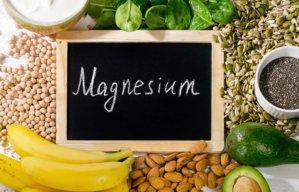 Although humans generally live longer now, an increasing number of people suffer from chronic diseases. Our medicine consumption is steadily increasing, yet the underlying causes are not addressed, and it is often down to a lack of essential nutrients. Just think of magnesium, a nutrient that is involved in more than 300 different enzyme processes that are important for our nervous system, digestion, muscle function, heart function, blood pressure, bone health, pregnancy, and utilization of vitamin D. This also means that lack of magnesium may be involved in the development of asthma, stress, insomnia, constipation, migraines, neurological diseases, cardiovascular diseases, breast cancer, premature deliveries etc. A recent review article published in Scientifica looks at the importance of magnesium in clinical therapy, and it is vital that magnesium supplements are in a form that the body can absorb and utilize.
Although humans generally live longer now, an increasing number of people suffer from chronic diseases. Our medicine consumption is steadily increasing, yet the underlying causes are not addressed, and it is often down to a lack of essential nutrients. Just think of magnesium, a nutrient that is involved in more than 300 different enzyme processes that are important for our nervous system, digestion, muscle function, heart function, blood pressure, bone health, pregnancy, and utilization of vitamin D. This also means that lack of magnesium may be involved in the development of asthma, stress, insomnia, constipation, migraines, neurological diseases, cardiovascular diseases, breast cancer, premature deliveries etc. A recent review article published in Scientifica looks at the importance of magnesium in clinical therapy, and it is vital that magnesium supplements are in a form that the body can absorb and utilize.







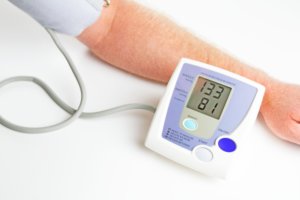 Elevated blood pressure causes more premature deaths worldwide than any other factor. Blood pressure is regulated by a number of things such as diet and lifestyle. Science has also discovered that low blood levels of
Elevated blood pressure causes more premature deaths worldwide than any other factor. Blood pressure is regulated by a number of things such as diet and lifestyle. Science has also discovered that low blood levels of 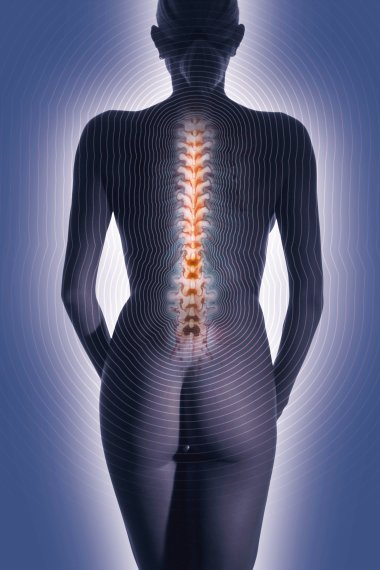 An adult contains around one kilogram of calcium, which is the most abundant mineral in the human body. Bones and teeth store around 99% of our calcium and 1 per cent is used to support metabolic functions. Levels of calcium in the blood are tightly controlled, as the slightest deviations may result in serious symptoms of the nervous system and the heart.
An adult contains around one kilogram of calcium, which is the most abundant mineral in the human body. Bones and teeth store around 99% of our calcium and 1 per cent is used to support metabolic functions. Levels of calcium in the blood are tightly controlled, as the slightest deviations may result in serious symptoms of the nervous system and the heart.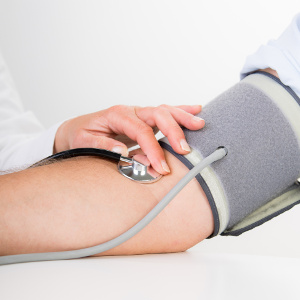 Yes, according to a new study published in Free Radical Biology & Medicine, lack of
Yes, according to a new study published in Free Radical Biology & Medicine, lack of  Copper is an essential trace element. An adult contains around 100-150 micrograms of copper. Most of it is found in the liver, brain, kidneys, and heart. Fetuses and newborn babies have particularly high copper levels in their liver. In fact, the liver is believed to serve as an extra storage facility during lactation where the copper content in breastmilk is rather low.
Copper is an essential trace element. An adult contains around 100-150 micrograms of copper. Most of it is found in the liver, brain, kidneys, and heart. Fetuses and newborn babies have particularly high copper levels in their liver. In fact, the liver is believed to serve as an extra storage facility during lactation where the copper content in breastmilk is rather low.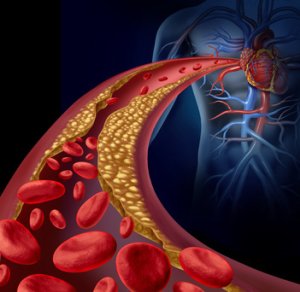 Atherosclerosis is one of the leading causes of death in the Western world, and the heart is particularly vulnerable. According to a study from the University of Birmingham, Alabama (USA), foods that are rich in potassium such as bananas, potatoes, avocado, and almonds protect against this disease, which takes years to develop. Beware that too much salt and the use of diuretics may deplete the body’s potassium stores.
Atherosclerosis is one of the leading causes of death in the Western world, and the heart is particularly vulnerable. According to a study from the University of Birmingham, Alabama (USA), foods that are rich in potassium such as bananas, potatoes, avocado, and almonds protect against this disease, which takes years to develop. Beware that too much salt and the use of diuretics may deplete the body’s potassium stores. Surprisingly many people suffer from hypertension without knowing it. That is a concealed threat, as elevated blood pressure is a common cause of stroke and premature death. However, people with hypertension who take folic acid along with their blood pressure-lowering medicine have a substantially lower risk of stroke.
Surprisingly many people suffer from hypertension without knowing it. That is a concealed threat, as elevated blood pressure is a common cause of stroke and premature death. However, people with hypertension who take folic acid along with their blood pressure-lowering medicine have a substantially lower risk of stroke.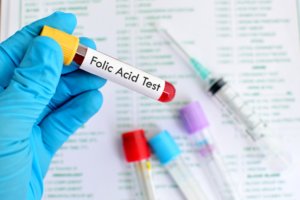 Hypertension is a growing problem. Worldwide, it causes more premature deaths than any other risk factor. Chinese researchers have now found that supplementation with a combination of folic acid and anti-hypertensive medicine lowers the risk of stroke by nearly 75 percent. It is important to underline that many people have elevated blood pressure without knowing about it, and many things can cause a
Hypertension is a growing problem. Worldwide, it causes more premature deaths than any other risk factor. Chinese researchers have now found that supplementation with a combination of folic acid and anti-hypertensive medicine lowers the risk of stroke by nearly 75 percent. It is important to underline that many people have elevated blood pressure without knowing about it, and many things can cause a 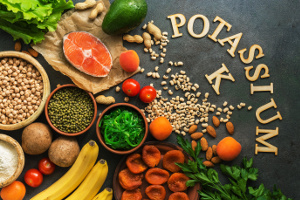
 Magnesium is an essential mineral. An adult contains around 20-30 grams of magnesium. Approximately half of the body's magnesium supply is stored in the bones. The rest is distributed in the muscles, liver, nerve tissue and other soft tissues. Magnesium is mainly found inside the cells where it supports over 300 different enzymatic processes.
Magnesium is an essential mineral. An adult contains around 20-30 grams of magnesium. Approximately half of the body's magnesium supply is stored in the bones. The rest is distributed in the muscles, liver, nerve tissue and other soft tissues. Magnesium is mainly found inside the cells where it supports over 300 different enzymatic processes.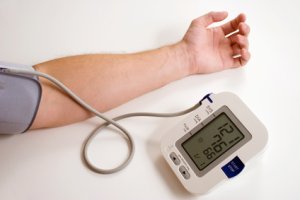 Cardiovascular disease is one of the leading causes of death. It is therefore vital to get enough
Cardiovascular disease is one of the leading causes of death. It is therefore vital to get enough 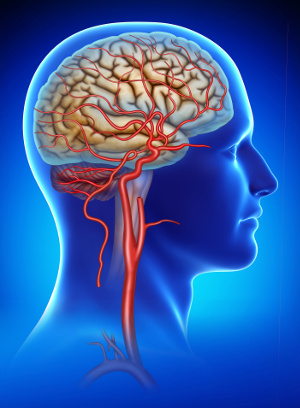
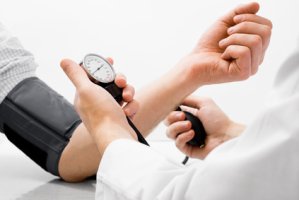 Many older people sleep poorly and tend to have elevated blood pressure. Luckily, supplementation with melatonin seems to correct both problems. Melatonin can even improve sleep in people who take beta-blockers for high blood pressure. So what is melatonin, and why is this substance particularly useful for older people?
Many older people sleep poorly and tend to have elevated blood pressure. Luckily, supplementation with melatonin seems to correct both problems. Melatonin can even improve sleep in people who take beta-blockers for high blood pressure. So what is melatonin, and why is this substance particularly useful for older people? Omega-3 fatty acids belong to a group of polyunsaturated fatty acids. Their "omega-3" name indicates that they have a double bond at the third carbon atom in the middle carbon chain. Omega-3 fatty acids provide energy and constitute an important element in all cell membranes and various biochemical processes. The type known as ALA (alpha-linoleic acid) is essential, as the human body is unable to produce it. We depend on a dietary supply of this fatty acid. By means of enzymes, ALA is converted to EPA (eicosapentaenoic acid) and DHA (docosahexaenoic acid) and finally into some hormone-like substances named prostaglandins (E3).
Omega-3 fatty acids belong to a group of polyunsaturated fatty acids. Their "omega-3" name indicates that they have a double bond at the third carbon atom in the middle carbon chain. Omega-3 fatty acids provide energy and constitute an important element in all cell membranes and various biochemical processes. The type known as ALA (alpha-linoleic acid) is essential, as the human body is unable to produce it. We depend on a dietary supply of this fatty acid. By means of enzymes, ALA is converted to EPA (eicosapentaenoic acid) and DHA (docosahexaenoic acid) and finally into some hormone-like substances named prostaglandins (E3). Elevated blood pressure, a problem many people have without knowing it, is the major cause of early death. Our lifestyle and what we eat play an enormous role and according to a new meta-analysis that is published in Journal of the American Heart Association, daily intake of three grams of omega-3 fatty acids can reduce your blood pressure. It is possible to get this amount of
Elevated blood pressure, a problem many people have without knowing it, is the major cause of early death. Our lifestyle and what we eat play an enormous role and according to a new meta-analysis that is published in Journal of the American Heart Association, daily intake of three grams of omega-3 fatty acids can reduce your blood pressure. It is possible to get this amount of 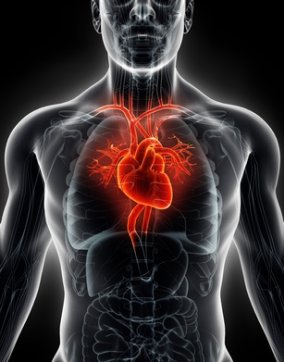 Many people suffer from chronic heart failure - often without knowing it. Numerous studies have shown that supplementing with
Many people suffer from chronic heart failure - often without knowing it. Numerous studies have shown that supplementing with 
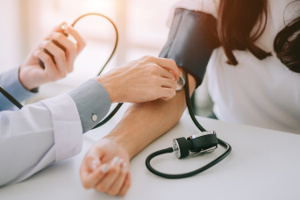

 The number of Danes suffering from one or several chronic diseases is a lot higher than previously thought, according to a group of scientists behind a new study from Danish Center for Healthcare Improvement at Aalborg University. Diseases such as hypertension, elevated cholesterol, depression, bronchitis, asthma, type 2 diabetes, rheumatism, and osteoporosis are among the most widespread ailments. Although there may be a reason of underlying factors, diet and lack of essential nutrients often play a key role. This is something that we have written about over the years on this website, and we have tried to gather some facts from various articles. Simple diet changes and the use of relevant nutritional supplements may play a key role in the treatment of these chronic ailments that come at a huge price, both to the individual sufferer and to society.
The number of Danes suffering from one or several chronic diseases is a lot higher than previously thought, according to a group of scientists behind a new study from Danish Center for Healthcare Improvement at Aalborg University. Diseases such as hypertension, elevated cholesterol, depression, bronchitis, asthma, type 2 diabetes, rheumatism, and osteoporosis are among the most widespread ailments. Although there may be a reason of underlying factors, diet and lack of essential nutrients often play a key role. This is something that we have written about over the years on this website, and we have tried to gather some facts from various articles. Simple diet changes and the use of relevant nutritional supplements may play a key role in the treatment of these chronic ailments that come at a huge price, both to the individual sufferer and to society.
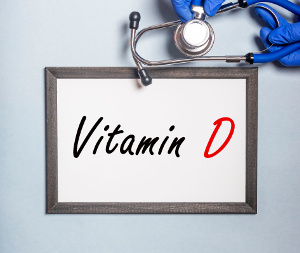
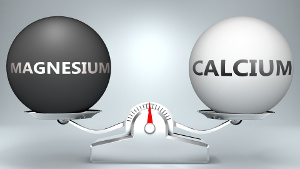
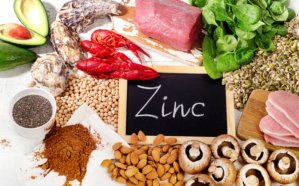 Our ability to absorb
Our ability to absorb  "After about one week of taking the Q10 supplement I could feel a huge difference," says 23-year old Alan Piccini, who has been suffering from extreme fatigue and muscle aches ever since he was a child.
"After about one week of taking the Q10 supplement I could feel a huge difference," says 23-year old Alan Piccini, who has been suffering from extreme fatigue and muscle aches ever since he was a child. “Taking capsules with co-enzyme Q10 has freed me of the severe side effects of my cholesterol lowering medicine,” Mrs Franken explains.
“Taking capsules with co-enzyme Q10 has freed me of the severe side effects of my cholesterol lowering medicine,” Mrs Franken explains.